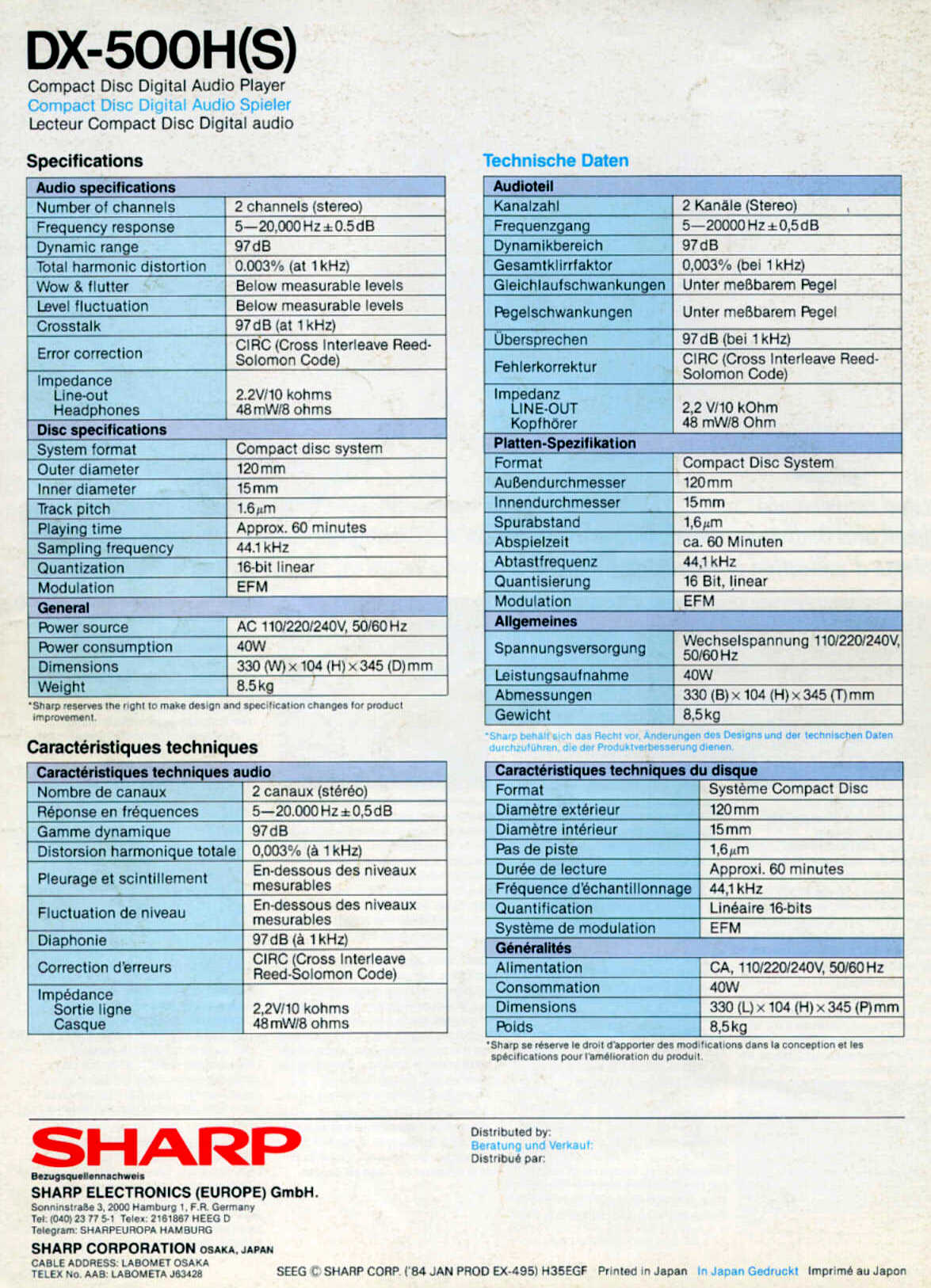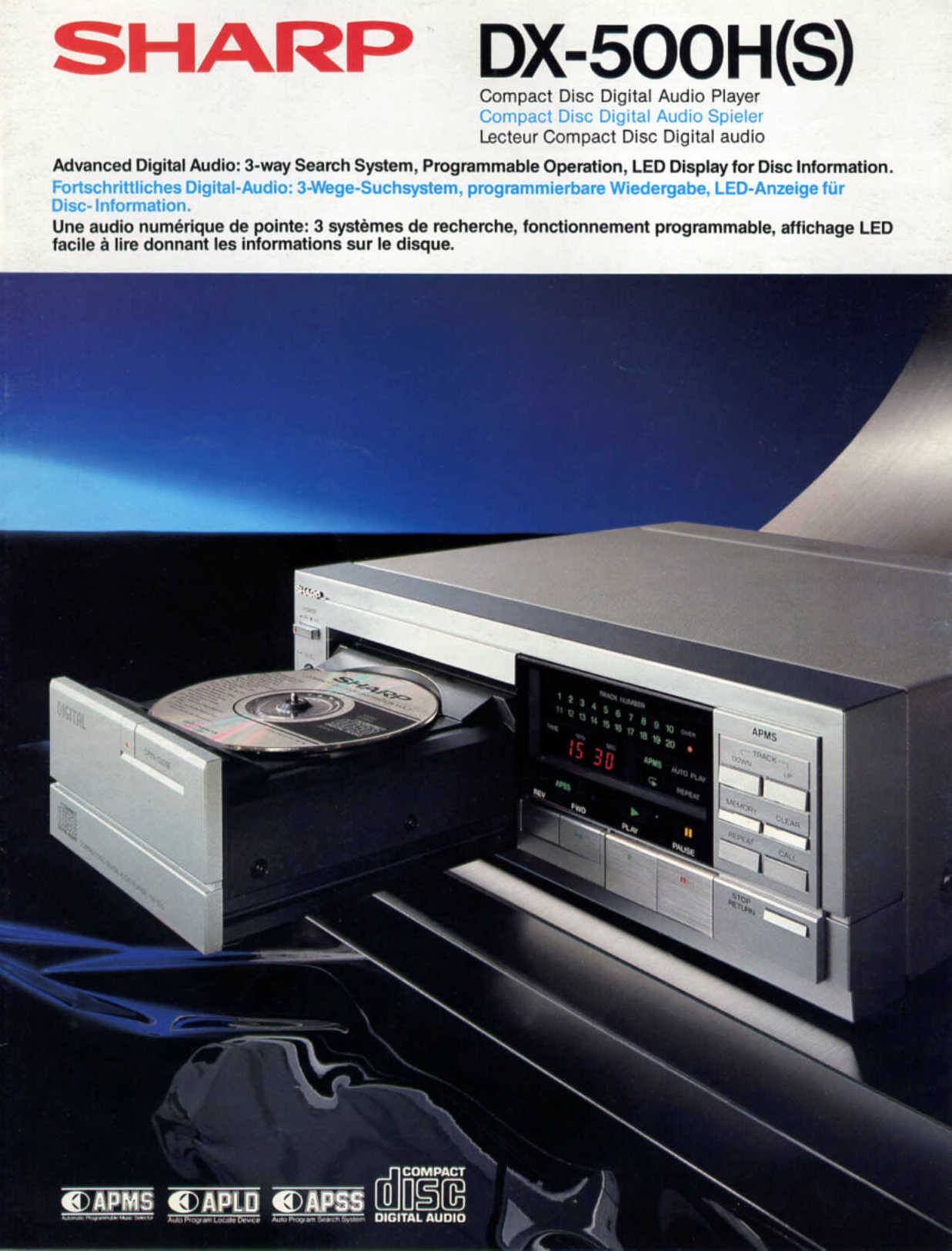Sharp DX-500
Data
General
- Manufacturer: Sharp
- Model: DX-500 H
- Type: CD-Player
- Years of manufacture: 1983 - 1984
- Made in: Japan
- Color: Silver
- Original price approx.: 1'698 DM
Technical data
Remarks
- Other models in the same series:
- Sharp DX-100
- Sharp DX-110
- Sharp DX-500
- Sharp DX-600
- Sharp DX-610
- Sharp DX-R 700
Pictures
- Extract from brochure: Sharp DX-500
Reports
- Report at "Hifi-Museum":
- Sharp DX-500H
- The Sharp DX-500H is a relatively small, compact unit with an aluminium finish. Its record drawer turned out relatively large, because the drive system and the laser scanner are integrated in it. The drawer fully extends at the touch of a button, allowing for easy CD insertion. One should only be careful not to bring the playing surface into rough contact with the centering mandrel.
- Peculiar function designation
- Once the CD has disappeared into the unit, after a short reading time the display automatically shows how many tracks are contained. If there are more than 20, an LED marked "Over" lights up, and 20 tracks must be added to the number now reported. The built-in time counter only indicates the length of the currently played title in minutes and seconds.
The ease of use is average. At the push of a button, the pickup jumps to the previous or next track, and there is also a fast forward and rewind function for finding specific points. Unfortunately it is not possible to listen in. Furthermore there is the possibility of direct title selection. The names for this function, which is practically standard on CD players, differ completely from the more commonly used ones on Sharp. The rather extensive, but somewhat confusing user manual confronts the owner with terms like APSS, then APMS and APLD, which also have a certain similarity to each other. Standard names would certainly be appropriate for the standard functions! The DX-500H's programming facility comprises 15 memory locations and is easy to use. Apart from the repetition of title, record and programme, this essentially exhausts the operating convenience. Depending on the operating modes, the buttons are sometimes assigned double functions, which are not exactly conducive to comprehensible handling.
- Top class technical features
The transmission characteristics leave nothing to be desired; the frequency response in the upper range, which is not linearly smooth, is insignificant from an aural point of view. It is also pleasing that the player copes very well with disturbances of the information track and the surface. It's a little more sensitive to vibrations, but on a quiet surface there are no problems. An adjustable headphone output is available.
- All in all, then, a player with not very great ease of use, good results in playback and immunity to interference, which is important for everyday use. rp

